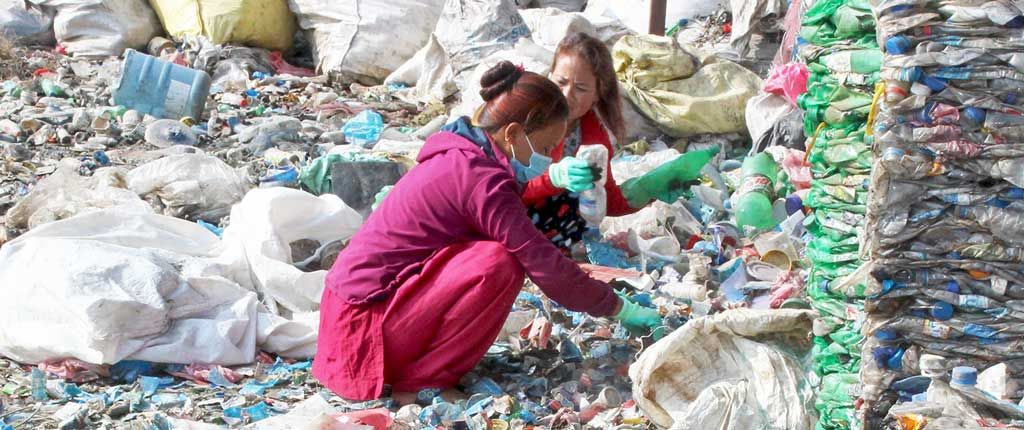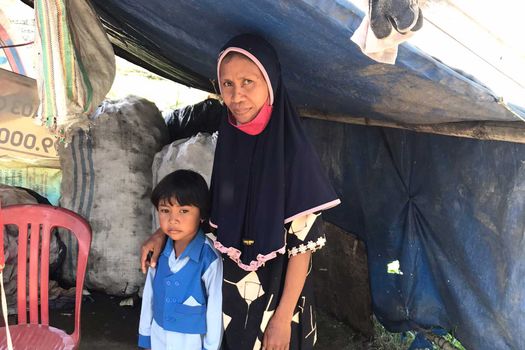The plastic problem: Excessive use and environmental pollution
Excessive use of plastic and the resulting pollution is a global and ever-increasing problem with severe consequences for the environment, people and animals. Many Asian countries, including India, the Philippines, Indonesia and Nepal, are being severely impacted due to rapid urbanisation and ambitious development: whole towns, rivers and coastal regions are are polluted with rubbish. COVID-19 has further exacerbated the situation with the increased use of masks, disinfectant bottles and packaging from goods ordered online. The causes of this excessive plastic use and ensuing plastic pollution are diverse:
There is a lack of awareness of the damaging effects of plastic waste.
Many people in our project areas do not know that plastic and micro-plastics have severe consequences for the health of both humans and animals as well as for the environment and for their own livelihoods. In particular marginalised groups, unofficial settlers and indigent persons have had little to no experience with environmental topics.
Attitudes and behaviours regarding plastic use and disposal result in the severe pollution of towns, villages and coasts.
In many Asian countries, most foods, hygiene articles and consumer goods are packaged in plastic, often in small bags so that even indigent persons can afford the portions. This plastic waste is often disposed of in the streets or in the rivers. There is a lack of awareness of how and why to reduce plastic, which leads to large amounts of unsuitably disposed waste.
There are not enough local plastic collection points and plastic recycling centres and there is little incentive for the population to dispose of their plastic there. Also, plastic is seen as waste and not used as a resource.
Local waste-disposal infrastructures are poor and there are no local plastic-disposal systems. Existing recycling centres are generally of industrial proportions and are therefore only found near congested urban areas. Due to the high transport costs to these centres and the numerous middlemen, unofficial rubbish collectors earn very little. As a result, there is no incentive to collect plastic waste and take it to the collection points or recycling centres. So far, ideas about how to locally produce and sell useful products made from recycled or upcycled plastic materials have only rarely been implemented.
The precarious situation of poor and marginalised women
In our project countries India, Nepal, Indonesia and the Philippines, many women are living in extremely precarious situations and tend to be more severely affected by poverty.
In urban slums and in rural areas in particular, there are few lucrative income opportunities for women, as they are only rarely given any business know-how and they are denied access to the means of production and to credit. As a result, many women work unofficially and have irregular, low incomes.
At the same time, it is often women who maintain the cleanliness of their villages or neighbourhoods. However, when these voluntary waste-management activities are made official and remunerated, it tends to be predominantly men who are employed by waste disposal companies or go into business themselves. This means that women’s involvement in the areas of hygiene and waste disposal is limited to voluntary community work and working unofficially as rubbish collectors. To date, they have not been able to generate sufficient income from plastic as a resource.










